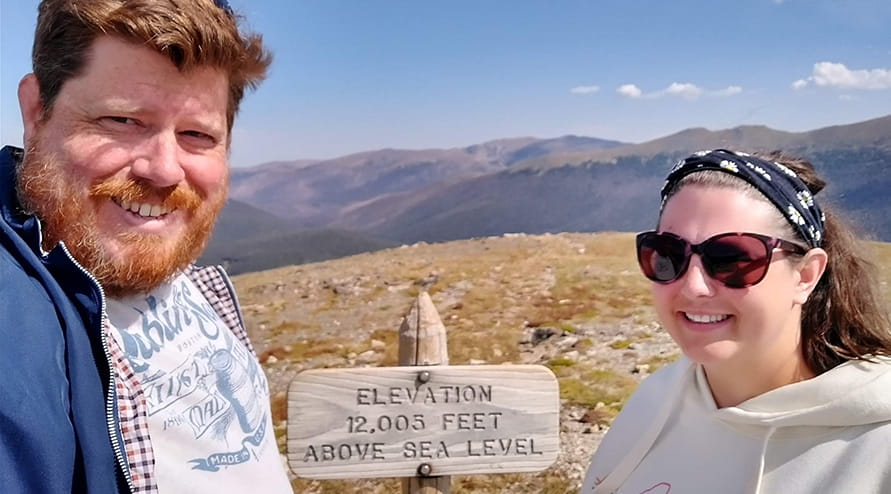
As part of Haynes and Boone, LLP’s commitment to wellness, the firm has long sought to educate employees about the dangers of alcoholism, addiction and other mental health challenges that disproportionately impact the legal industry.
Those efforts continue in April, which is Alcohol Awareness Month in the U.S. Haynes Boone’s Wellness Manager Abby Read recently interviewed Senior Competitive Intelligence Specialist James Jewell, a former practicing lawyer, who spoke candidly about his battles with alcoholism and the wellness practices that have contributed to his recovery.
Abby: Tell me a little bit about your work history and background.
James: After graduating from law school in 2011, I worked for a sole practitioner, representing clients in workers’ compensation and personal injury claims. Later, I was a staff attorney with Legal Services of Eastern Missouri, where I specialized in representing clients with HIV in estate planning, employment and housing disputes, among other matters. I left in 2018 to attend business school at the University of Washington, where I obtained a master’s degree in information systems. Following a stint with Thomson Reuters in Dallas, I joined the firm in the summer of 2020.
Abby: You are a wellness champion and a regular attendee of our firm-sponsored weekly meditations. Why are you interested in wellness?
James: I have a long history with depression and anxiety, which, in college, contributed to an alcohol dependence. In April of 2017, I quit drinking and started going to Alcoholics Anonymous and started to get more serious about taking care of myself. Six months later, my mom died, which, as opposed to steering me off track, has motivated me to stay sober and committed to my well-being, because she would have wanted me to.
Abby: What short-term strategies did you find helped in your recovery and sobriety?
James: Initially, the most important strategy was for me to switch environments completely from the friends I was hanging out with and the places I was hanging out in. I developed new hobbies and started surrounding myself with people who supported my new lifestyle.
Abby: What long-term strategies have you found to be helpful in maintaining your mental health and sobriety.
James: Having a regular meditation practice has helped. I first tried meditation in 2015 and later deepened my practice as a student at the University of Washington, where I took a meditation class. Since 2019, I have practiced meditation daily, using the Waking Up app. Meditation has helped with stress, sleep and quieting my mind by allowing me to detect and interrupt depressed and negative thought patterns. Exercise has also been a big help. I started exercising regularly in 2017, including walking and going to the gym. I also love tennis and was playing once or twice a week, but I have had to take a break due to issues with my feet and knees. I also learned to cook, which is my favorite new hobby.
Abby: What would be your advice to someone struggling with addiction?
James: It’s possible for things to get better and possible for things to change. It’s important to be open to that change – and to be open to your own feelings about when it’s time for a change. I was aware that I was an alcoholic for a long period of time. I tried at times to stop. It never stuck until I was actually motivated and realized: I have to stop doing this — it’s bad for my health and relationships. And when people are open to change, I would advise them to get the help they need to do it. I’ve now been sober for six years and have never looked back.
Abby: What are some misconceptions you have dealt with or that you see circulating around addiction?
James: People are conditioned to think of addiction as a secret – a bad thing that is shameful, reflects poorly on me personally and shouldn’t be talked about. If you are a high-functioning alcoholic, it is also possible to have a problem that other people can’t detect. But it’s still a problem that you should address and get help with, even if you’re going through your life seamlessly. There is hope for a more fulfilling and joyful life, and you won’t regret it once you’ve made that choice.